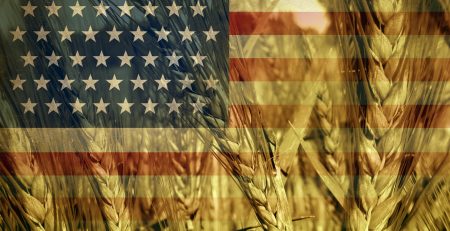28Aug

Taiwan has long sought a free trade agreement with the United States, its most important supporter on the international stage, but Washington has complained about barriers to access for U.S. pork and beef. Taiwan said that was for health grounds, especially with concerns over mad cow disease and additives.
President Tsai Ing-wen said her government planned to allow the import of U.S. pork containing ractopamine, an additive that enhances leanness, and allow in U.S. beef more than 30 months old.
“The decision is in line with the country’s overall interests and the goals of the nation’s strategic development. It’s also a decision that could boost Taiwan-U.S. ties,” she said.
“If we can take one crucial step forward on the issue of U.S. pork and beef, it will be an important start for Taiwan-U.S. economic cooperation at all fronts.”
U.S. State Department spokeswoman Morgan Ortagus said the United States welcomed Taiwan’s move and removing “these long-standing barriers” opened the door to greater economic and trade cooperation.
“We look forward to the timely implementation of these actions, which will provide greater access for U.S. farmers to one of East Asia’s most vibrant markets, and for Taiwan consumers to high-quality U.S. agricultural products,” she said.
Tsai said that while it may take a while to reach a bilateral trade agreement with the United States, she had a positive attitude on the issue.
The United States is an “extremely important” trade partner for Taiwan, and the decision has nothing to do with the upcoming U.S. presidential election, she added.
Council of Agriculture Minister Chen Chi-chung said the eased pork and beef rules were expected to come into effect on Jan. 1.
Taiwan-U.S. trade last year was worth $85.5 billion, with the United States running a $23.1 billion deficit. Taiwan was the United States’ 14th biggest export market in 2019.
The United States, like most countries, has no official relations with Taiwan, which is claimed by Beijing as sovereign Chinese territory. China has been stepping up its military activities near Taiwan.
Export-dependent, tech powerhouse Taiwan has also been pushing for an investment agreement with the European Union.

Soybean prices received support with the release of the October crop production report. The lowering of harvested acreage for soybeans... read more

Farmers are facing a reality that’s gripping the majority of agriculture today. “The price of corn seems to be still in... read more

The USDA held its annual Agricultural Outlook Forum this week in Arlington, Va. As many as 2,000 attendees attended the... read more

Trade relations between China and the U.S. are now on rocky waters as the Trump administration has turned up the... read more

In their Monday Crop Progress report, USDA outlined both crop conditions and crop progress for this week. According to the... read more

All sectors of agriculture, including produce, specialty crops and horticulture, will be included in a $16 billion direct payment plan... read more

Hay supplies in Michigan have definitely decreased in the last six months. Going into the 2017 summer season, the growing... read more

With talks slowed by discord and tough demands by the U.S., the hope for a quick finish to a redo... read more

More than ever before, producers live in a global marketplace. South America came off a record soybean crop, which pressured... read more

Soybeans The supply of soybeans to Argentine crushing plants is down by half and falling, the Rosario grains exchange. ... read more